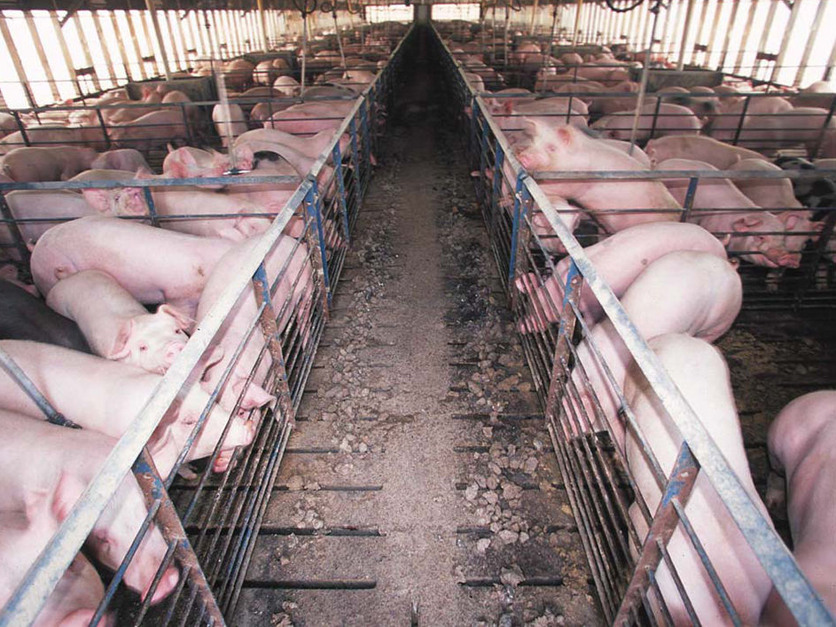USDA researchers have confirmed the absence in the commercial pork supply of trichinella, a parasitic worm "that once posed a major food safety risk,” the department’s Agricultural Research Service said Friday.
“ARS and the Animal and Plant Health Inspection Service (APHIS) conducted a national survey by sampling 3.2 million pigs raised under the U.S. Pork Quality Assurance Plus (PQA+) program and found zero animals infected with Trichinella,” ARS said in a news release. “These results are consistent with international food safety guidelines for Trichinella to be considered a negligible risk for public health.”
The larvae of the microscopic trichinella worms can pass to humans from undercooked, infected meat, but today the disease trichinosis, or trichinellosis, is very rare in the United States with only 15 confirmed cases a year, compared to 10,000 worldwide, according to the Centers for Disease Control.
Until now, the absence of trichinella had not been confirmed in the pork supply.
It’s easy to be “in the know” about what’s happening in Washington, D.C. Sign up for a FREE month of Agri-Pulse news! Simply click here
“The surveillance data support the assertion that the U.S. PQA+ program effectively mitigates risk for Trichinella infection in pigs,” said Benjamin Rosenthal, research leader of the ARS Animal Parasitic Disease Laboratory. “It is equally important to note that the data could be useful for future food safety decisions, including hazard analysis decisions.”
“USDA scientists have confirmed that U.S. pork producers’ rigorous biosecurity efforts to keep pigs healthy are working,” said National Pork Producers Council President Lori Stevermer, a pork producer from Easton, Minnesota. “Because of decades of pork industry research and hard work on the farm, consumers can continue to be confident that the pork on their dinner table is safe to eat.”
The United States does not perform post-slaughter testing for trichinella in the pork supply, but ARS said “modern production systems followed by U.S pork producers effectively minimize risk of exposure” to the parasite, the service said.
“ARS researchers pursued this study to ascertain whether the PQA+ program eliminates the risk of Trichinella exposure in commercial pork, thereby addressing the demands of the U.S. export market,” ARS said.
The PQA+ program “is an education and certification program designed by the U.S. pork industry to help pig farmers and their employees continually improve production practices. The program addresses food safety, animal well-being, environmental stewardship, worker safety, and public health,” ARS said. It includes five best management practices for prevention of exposure to trichinella:
- Following proper feed biosecurity protocols.
- Preventing exposure to rodents, wildlife, and birds.
- Refraining from feeding raw food waste of animal origin to swine.
- Promptly removing and properly disposing of swine carcasses.
- Documenting animal arrivals and departures from PQA+ production sites.
In the study, ARS tested about 3.2 million animals across 12 processing locations over four and a half years. “Parasites were not detected in any of the diagnostic samples, providing a 95% confidence in a Trichinella prevalence of less than 1 in 1,000,000 pigs,” ARS said.
Trichinella in pork was once a major food safety risk in many countries, “justifying decades of effort expended on controlling this parasite. The data obtained from testing support the conclusion that pork from pigs managed under the PQA+ program do not pose a public health risk.”
For more news, go to www.Agri-Pulse.com.


